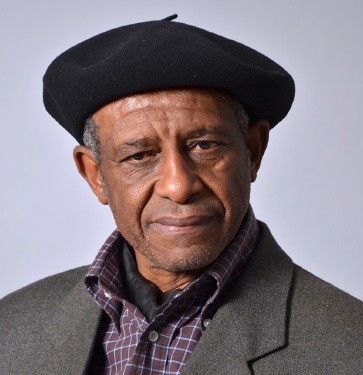
Engaging with Mogobe Ramose is to understand that there are no quick fixes to the systemic educational challenges in Africa. It is the very foundations of these systems that he challenges and unapologetically calls out.
“Education takes its etymology from the Latin word ‘educere’. We see very clearly that even the Latin word itself is composed of two: ex ducere –– you lead out of. Education is to lead someone out of. You may say, if you want to follow the reasoning of Joseph Conrad, who Chinua Achebe correctly accused of racism in his Heart of Darkness –– you can actually lead someone out of darkness.”
“To avoid the racism of Conrad, let us say you lead someone out of ignorance. That is perfect. Nobody knows everything, so it is good to lead someone out of darkness. But the history of education in Africa from the point of view of the experience of colonisation –– it was to lead not only out of darkness but also to lead the conquered Africans into epistemic slavery. Not only that. The conquered peoples also were led into economic bondage which is still a very big problem today. Both of them are problems in the educational sphere: epistemic slavery and economic bondage.”
As a former political refugee, having been exiled from South Africa during the apartheid Regime, Ramose is acutely aware of oppressive regimes but contends an exposition of colonialism is necessary if we are truly going to effect systemic change.
“Education has to have ethics at the forefront.” Ramose is unequivocal in his appraisal of Africa’s challenges but also in his articulation of solutions, and the heavy burden thereof. Ramose says that we know what is to be done.
Why then does the gap continue to exist between knowing how to behave ethically, and actually doing so?
“I want to be concrete and take part of the political history of this continent into account. We know that economic bondage went hand in hand with the granting –– reluctant granting –– of independence to Africa. Only in the political aspect. Not the economic aspect.” He articulates the colonisers’ objective: ‘You will be free only politically, but definitely not economically.’
“Yilma Makonnen has got it very well recorded in his book, International Law and the New States of Africa, we see that the slave master demands compensation from the enslaved. And what is to be done taking that into consideration?” The erudite Ramose invokes African revolutionaries to illustrate the point:
“What did Kwame Nkrumah do? And what was his fate? We know it.
As if that was not enough. Even in the lifetime of Nkrumah there was Patrice Lumumba in the Congo. We also know his fate.”
“To those who actually imposed their own version of democracy on Africa, it didn’t mean anything. Democracy may be put into the deep freeze when it comes to their own interest” says Ramose of the former colonisers still hell-bent on having their needs met.
“Then we have Thomas Sankara. Where is he? This aspect –– that you will be killed If you don’t toe the line –– is responsible for this gap between knowing how to behave ethically and actually doing so. People know what price they will have to pay.”
“Even if you may not be killed –– What you are doing can be killed, and that’s what brings me to Julius Nyerere who nearly proceeded with Ujamaa. But Ujamaa was a different economic and political logic; fundamentally different from that which was supposed and intended to prevail. Now instead of assassinating the whole project, the trajectory of Ujaama was undermined.”
An Africa free from imperialist logic and systems, will require the courage and ethics of these pan-africanist giants. Ramose laments some specific legacies of colonialism which he wishes we would overcome.
First, “I call it job o’mania –– the madness about looking for a job. We must remember that this concept of a job in Africa entered by force. It is normalised for us today, so we don’t see it as a problem. If we were sober, we should start from the point of view that this was introduced by force, what does this mean?’”
What is the alternative? “We should think like what Kwasi Wiredu has confirmed about a lot of African cultures and traditions on this point: life from an African ethical point of view, is mutual aid. Surely mutual aid is not the synonym of unilateral exploitation. So if we think along these lines, I think ‘job o’mania’ will finally be cured somehow.”
“Second, is related to another problem: ‘pecunia-mania’. Money. Money. Money everywhere. Like in the poem of the Rhyme of the Ancient Mariner, it was water, water, water, everywhere. From the same religion and from the same legal philosophy of the West, we learn that ‘Thou shall not kill’. But every day whether you are in Europe or in Africa, what do you see? Money transport vehicles, with the people in those cars allowed to kill. In the name of money, the fifth Commandment is set aside. Even God doesn’t matter when it comes to money. Is it perhaps the reason why we have the inscription on the American dollar? In God we trust?”
“The final issue is truthfulness. What is truthfulness? The moral courage required is based on the idea of truthfulness.”
Ramose sets a high bar, or perhaps just a truthful one, to meet the moment if we are to change our fundamental ways of thinking, being, and doing in the context of Africa. An Africa unshackled. A continent set free from bondage. It is not an easy endeavour but he offers Spinoza as a coda: “Sed omnia praeclara tam difficilia quam rara sunt –– But all excellent things are as difficult as they are rare.”


















